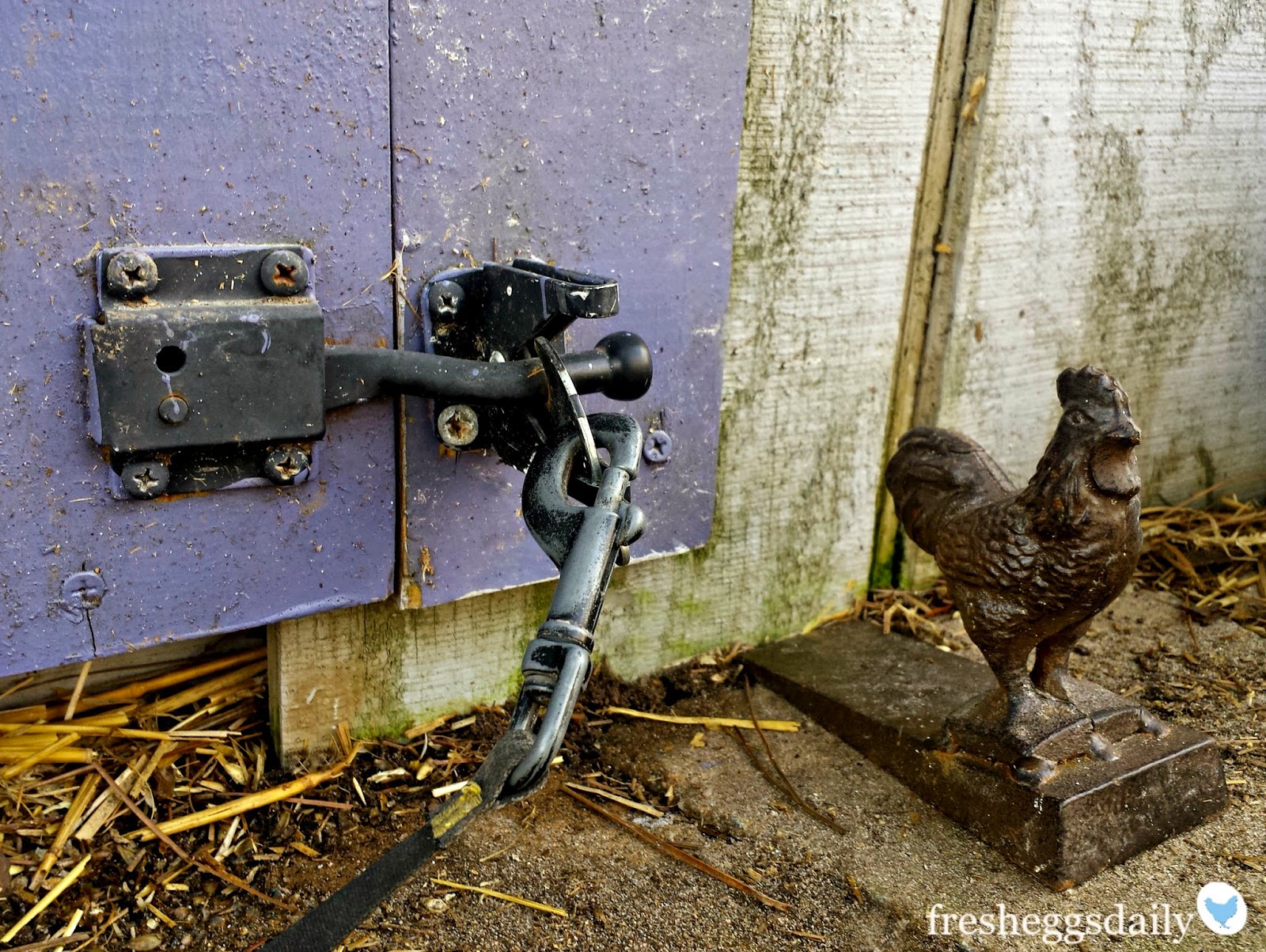Having chickens as part of your backyard homestead can be a fun and rewarding experience. However, it is important to understand that in order to properly care for your chickens, you must also take precautions to ensure their safety. One of the most important ways to do this is by using chicken coop locks. With a secure lock, you can rest assured that your chickens will be safe from predators, while still allowing them the freedom to roam and enjoy their home. In this article, we will discuss the importance of chicken coop locks, and how they are essential in chicken husbandry.
What are Chicken Coop Locks and How Do They Work?
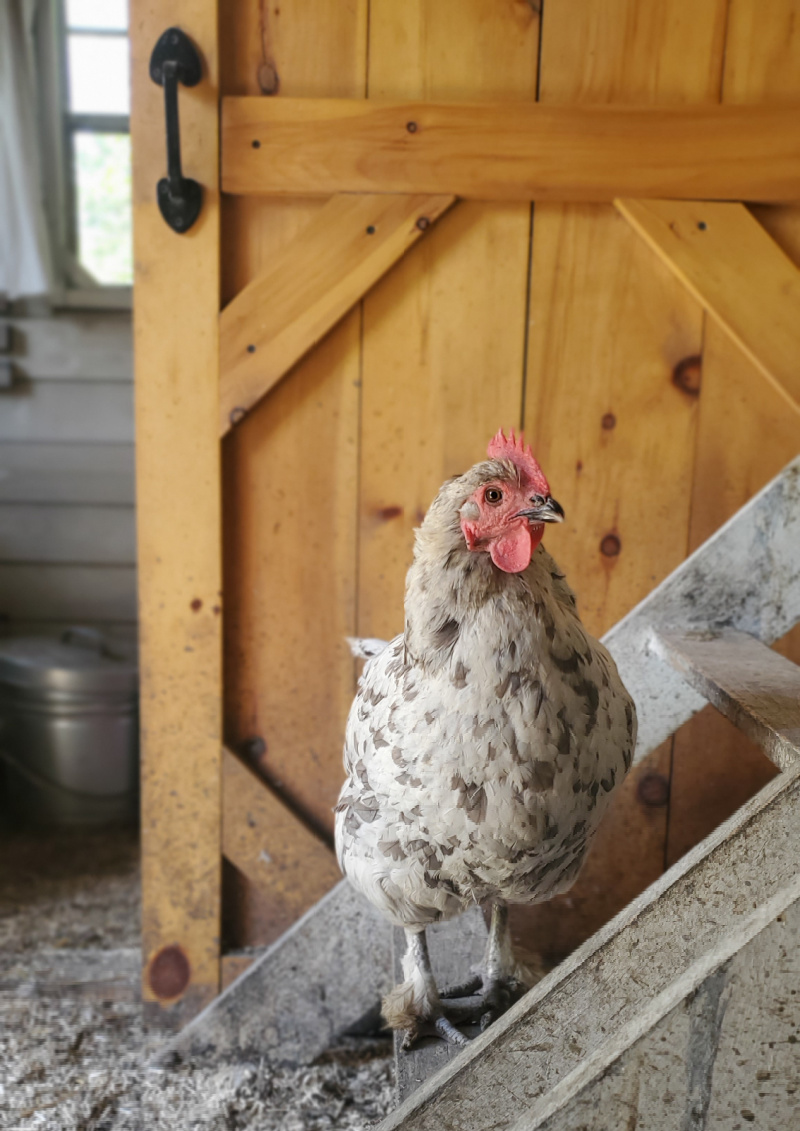
Chicken coop locks are essential for any chicken keeper looking to keep their chickens safe and secure. They provide an extra layer of security for the coop, preventing predators from getting inside and allowing you to lock the coop when you are away. Here are a few ways chicken coop locks can be used to secure your chickens:
- Locking the Coop from the Outside: Chicken coop locks can be used to lock the coop door from the outside. This allows you to control access to the coop and keep predators out.
- Locking the Coop from the Inside: Chicken coop locks can also be used to lock the coop door from the inside. This allows you to keep the chickens safely inside the coop while you are away.
- Locking Feeders and Water Containers: Chicken coop locks can also be used to secure feeders and water containers, preventing predators from accessing the food or water.
- Preventing Unauthorized Access: Chicken coop locks can also be used to prevent unauthorized access to the coop, ensuring that only authorized personnel can enter the coop.
Chicken coop locks are an essential part of chicken husbandry, as they provide an extra layer of security and help to protect your chickens from predators. They also allow you to lock the coop when you are away, ensuring that your chickens are safe and secure.
Benefits of Installing a Lock on Your Chicken Coop
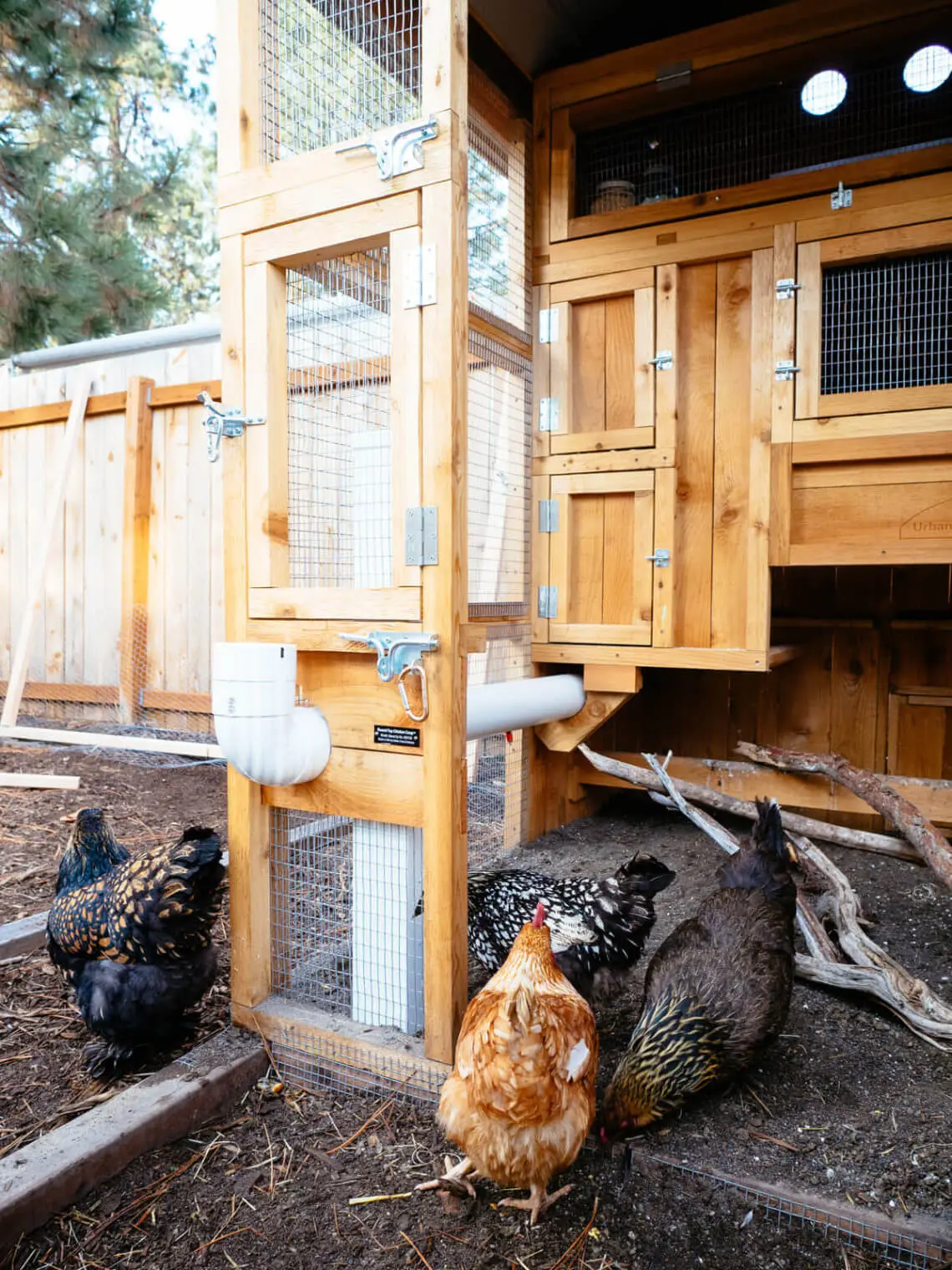
- Protects chickens from predators such as foxes, raccoons, coyotes, and hawks.
- Ensures chickens remain safe and secure inside the coop at night.
- Prevents theft of eggs and chicken feed.
- Provides additional security for your flock if you are away from home.
- Allows you to control access to the coop and monitor who is entering and leaving.
- The best lock for chicken coop will help you to easily identify any intruders.
Installing a lock on your chicken coop is one of the most important steps you can take to protect your chickens. A good lock can help you to ensure that your birds are safe, secure and protected from predators and other potential threats. With a lock in place, you can be sure that your flock is safe and sound while you are away from home.
Different Types of Locks for Chicken Coops
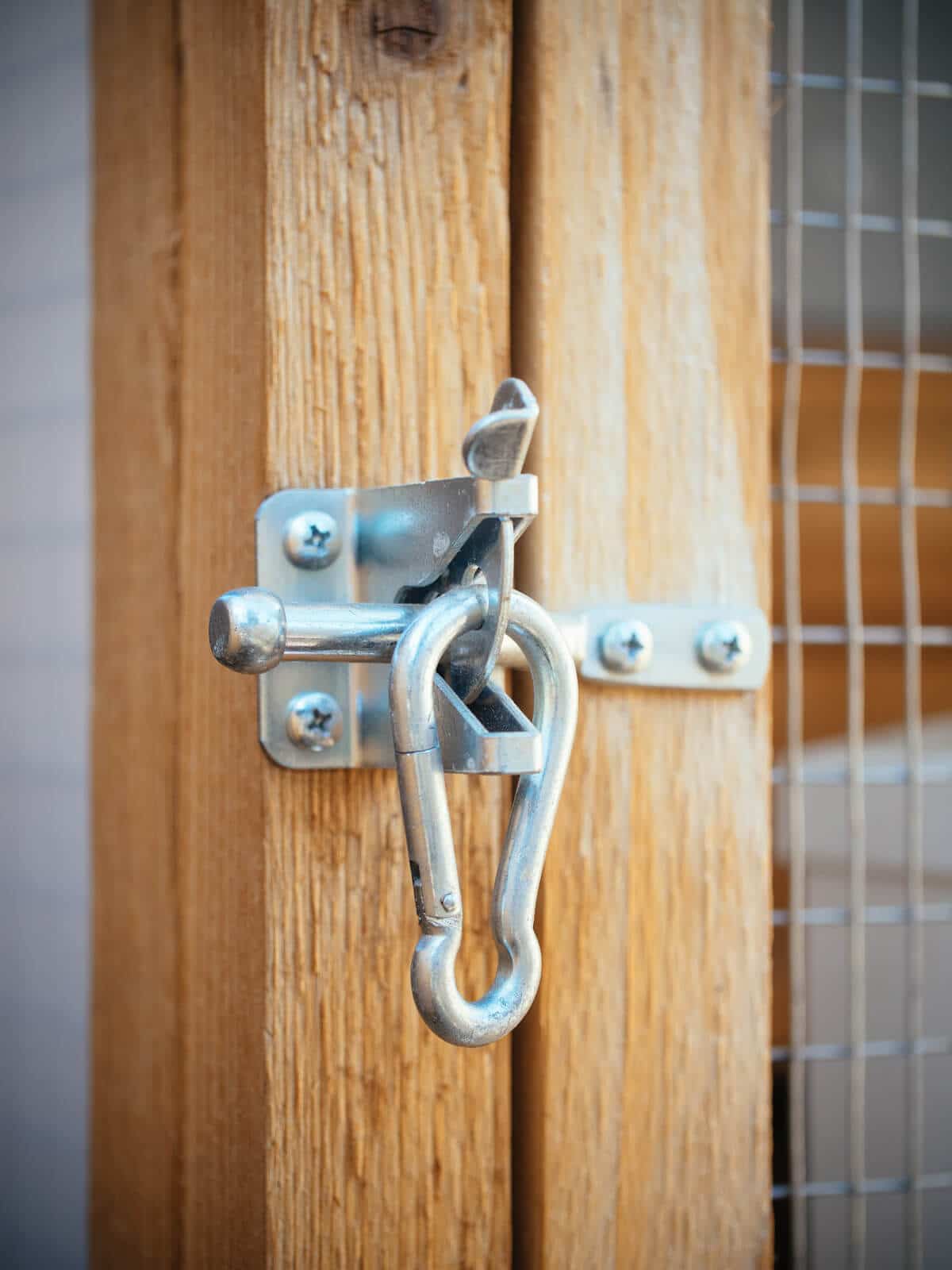
Padlocks
Padlocks are the most common type of lock used to secure chicken coops. They are often inexpensive, easy to install, and require minimal maintenance. Padlocks can be used in combination with a hasp to secure the door of the coop. Padlocks come in a variety of sizes and styles, so you’ll be able to find one that fits your needs.
Deadbolts
Deadbolts are a more secure option than padlocks. They require a key to open and can be installed on the inside of the coop for added security. Deadbolts are typically more expensive than padlocks and require more installation time, but the extra security is well worth the investment.
Keyless Entry Systems
Keyless entry systems are becoming increasingly popular for chicken coop security. These systems use a combination code or fingerprint scanner to unlock the door. They are secure, easy to install, and require minimal maintenance. Keyless entry systems provide an extra layer of security and peace of mind when it comes to protecting your chickens.
No matter what type of lock you choose, it is essential to have secure locks on your chicken coop. This will ensure the safety of your chickens and give you peace of mind.
Choosing the Best Lock for Your Chicken Coop
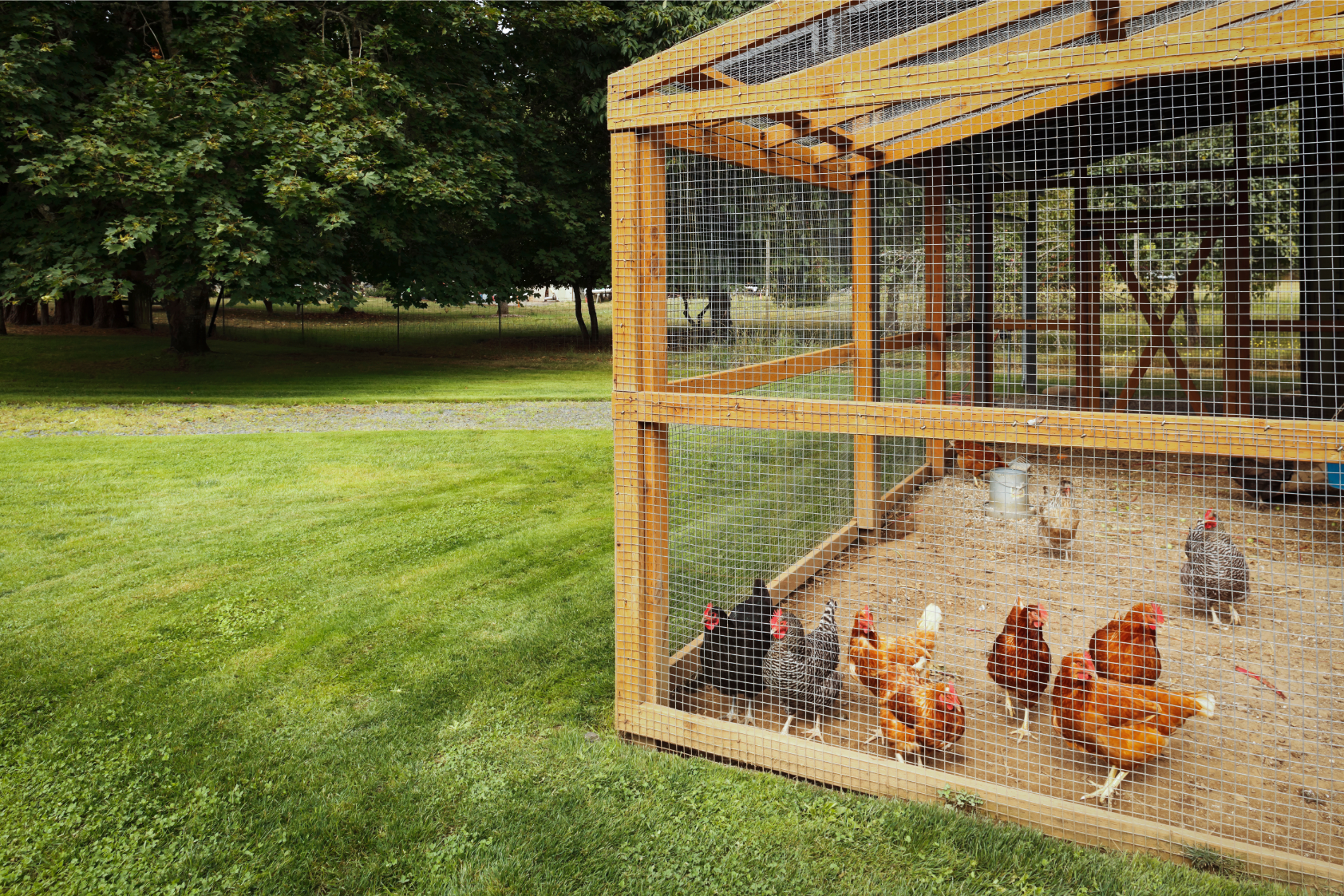
Consider Durability
When selecting a lock for your chicken coop, it is important to consider the durability of the lock. The lock should be able to withstand the elements, as well as being strong enough to resist tampering. Look for locks that are made from rust-resistant metals, such as stainless steel.
Consider the Cost
Another factor to consider when selecting a lock for your chicken coop is the cost. It is important to consider the cost of the lock relative to the value of the chickens. A more expensive lock may be worth the extra cost if it offers increased security and protection for your chickens.
Consider the Level of Security
It is essential to consider the level of security that the lock provides when selecting a lock for your chicken coop. Look for locks that have multiple locking points, as well as locks that are difficult to pick. High-security locks offer the best protection and should be the preferred choice when securing your chickens.
Installing and Maintaining Your Chicken Coop Lock
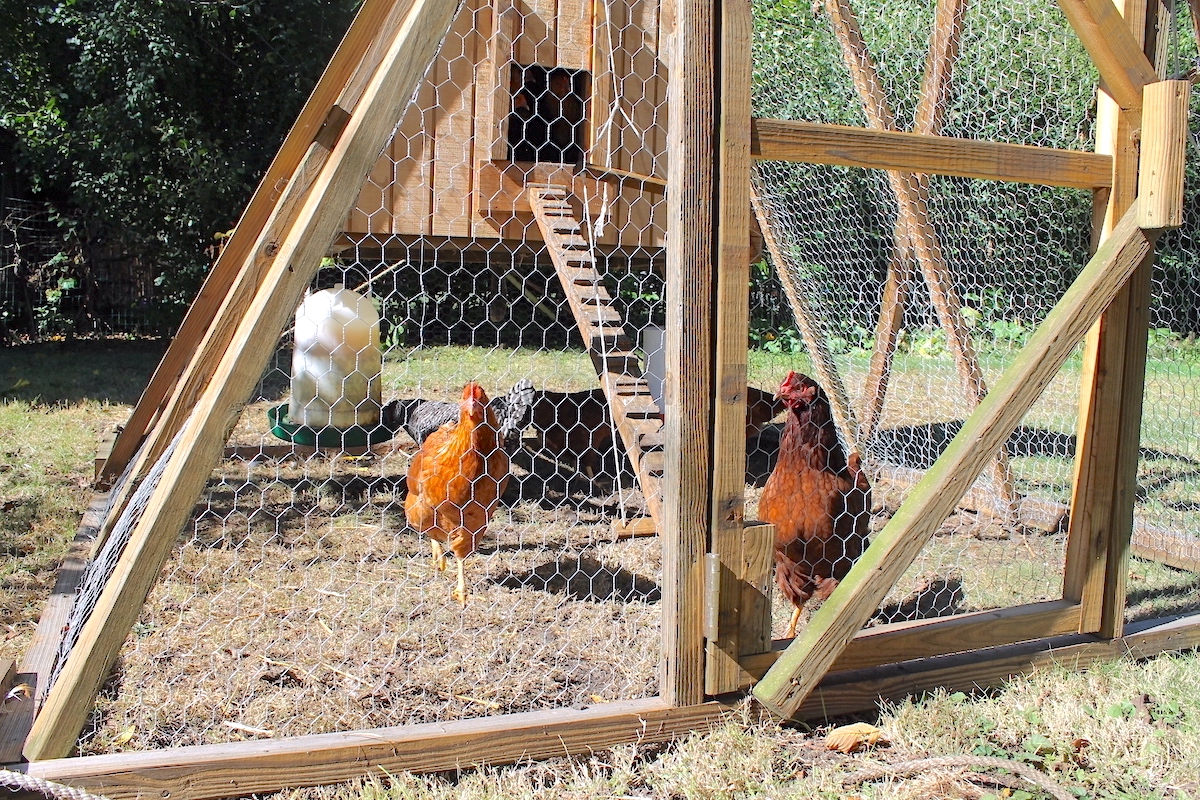
Installing a chicken coop lock is the best way to ensure the safety of your chickens. Installing the lock is a simple process that requires minimal tools and materials. First, you will need to decide on the type of lock you want to use. Some locks come with a padlock, while others require a key. Once you have chosen the lock you want, measure the door and drill the appropriate sized holes for the lock components. Then, insert the components into the holes and secure them with nuts and bolts. Finally, attach the handle or padlock depending on the type of lock you have purchased.
Once the lock is installed, it is important to maintain it in order to ensure that it continues to function properly. Make sure to check the lock regularly for rust and corrosion. If rust or corrosion is present, clean it off and lubricate the lock with a lubricant designed for locks. You should also check the nuts and bolts that hold the lock in place to make sure they remain tight. Additionally, if you are using a padlock, make sure to keep the key in a secure location to prevent anyone from accessing the coop.
By following these simple steps, you can rest assured that your chickens will be safe and secure in their coop. Installing and maintaining a quality chicken coop lock is an essential part of chicken husbandry.
Alternatives to Chicken Coop Locks
Electric Fences: Electric fences are a great alternative to using chicken coop locks. They provide a barrier to keep predators out while still allowing the chickens to roam freely. They can be adjusted to different heights, making them ideal for preventing chickens from flying over the fence.
Motion Sensor Lights: Motion sensor lights are a great option for keeping chickens safe at night. The lights will turn on when motion is detected, deterring potential predators from entering the chicken coop.
Motion Sensors: Motion sensors are similar to motion sensor lights, but they are a bit more low tech. Motion sensors can be placed around the chicken coop to detect movement, triggering an alarm to alert you of any potential predators.
Netting: Netting is a great way to keep predators out, as it is difficult for them to get into a chicken coop without being caught in the netting. It is also an ideal option if you need to keep chickens in a certain area, as the netting can be adjusted to a certain height.
Buried Perimeter Fence: This is an ideal option if you have a large property and need to keep chickens contained in a certain area. A buried perimeter fence will keep chickens in and predators out. The fence should be buried at least two feet deep and should be checked regularly for any damage.
Frequently Asked Questions
What are the Benefits of Having Locks on Chicken Coops?
Locks on chicken coops provide a number of benefits that make them essential in chicken husbandry. Locks help to keep predators out, deter theft and vandalism, and create a safe, secure environment for your chickens. Locks also help to keep your chickens from escaping the coop and potentially coming to harm. Additionally, they can help keep other animals out of the coop and away from your chickens’ feed. Finally, locks provide a measure of control over who has access to the chicken coop.
What are the Different Types of Locks That Can Be Used for Chicken Coops?
Chicken coop locks come in a variety of forms, all of which serve the purpose of protecting chickens from predators. Padlocks are the most common type of lock used in coops and are highly effective when used in conjunction with a latch or other type of closure. Keyed locks provide additional security and are ideal for securing larger coops. Combination locks offer the convenience of not having to carry a key, while still providing adequate security. Other types of locks that can be used in chicken coops include cam locks, sliding locks and deadbolts. Regardless of the type of lock used, it should be constructed of durable materials to ensure long-term use in all weather conditions.
How can I ensure that my locks are secure enough to protect my chickens?
1. Choose a lock that is high quality: Invest in a high-quality lock that is specifically designed for chicken coops. This could be a combination lock, padlock, or even an electronic lock. Make sure the lock you choose is strong and durable and can withstand any weather conditions.
2. Keep the lock away from your chickens: To ensure the security of your chickens, keep the lock away from them. This will prevent them from tampering with it or accidentally hurting themselves.
3. Regularly check and maintain your lock: Make sure to regularly check and maintain your lock to ensure it is still working properly. If the lock has been exposed to extreme weather conditions, it may need to be replaced.
4. Make sure the lock is out of reach: Make sure the lock is out of reach of predators such as raccoons or other animals that may try to get in.
5. Install additional security features: Install additional security features such as a motion sensor light or alarm. This will provide an additional layer of security for your chickens.
6. Ensure the lock is properly installed: Make sure the lock is properly installed, as this will ensure it is secure and functioning properly. Follow the instructions carefully when installing the lock.
By following these tips, you can ensure that your chickens are safe and secure, and your locks are secure enough to protect them.
Are there any precautions I should take when using locks on my chicken coop?
When using locks on a chicken coop, it is important to make sure they are secure and fit properly. Check the locks regularly to make sure they are in good condition and that the key works. Additionally, make sure to use a lock that cannot be easily tampered with or picked. Lastly, consider installing a motion sensor light near the coop to deter possible intruders.
How often should I inspect the locks on my chicken coop?
It is recommended to inspect the locks on your chicken coop at least once every two weeks. Ensure that the locks are functioning properly and are not damaged. Replace any locks that are not functioning correctly. If you find that the locks are not strong enough to keep predators out, consider investing in stronger locks. Additionally, check your locks for signs of tampering from predators. If you suspect that a predator has gotten into your chicken coop, it is important to take the necessary steps to prevent future access.
Conclusion
A secure chicken coop is essential to successful chicken husbandry. Installing locks on chicken coops is an effective way to keep predators out and protect chickens from harm. The right locks can also provide easy access to the coop for the owner. With the right locks, chicken owners can rest assured that their chickens are safe and secure.
